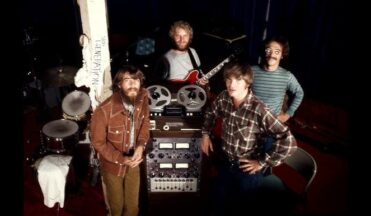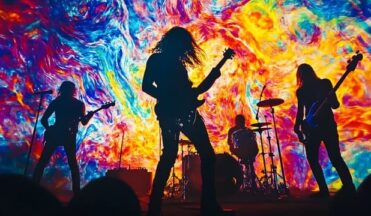As with all great musical movements, the echoes of psychedelic rock continue to reverberate over time, influencing subsequent genres and artists. Despite its golden age in the sixties, the influence and spirit of psychedelic rock is far from dormant. It has changed, blended with other genres, and resonated with new generations of artists and listeners.
Influence on the modern music scene
The modern music scene owes a great debt to the pioneers of psychedelic rock. Elements of psychedelia can be found in various genres, from indie rock and dream pop to certain areas of electronic music. The genre’s characteristic features – vast soundscapes, introspective lyrics, and inventive use of instruments – have left an indelible mark on contemporary music. Bands such as Tame Impala and MGMT have embraced and reinterpreted the psychedelic spirit of the 21st century, demonstrating its enduring appeal.
Modern psychedelic revival and artists
In recent years, we have seen a clear renewal of interest in psychedelic sounds. A new generation of artists, drawing inspiration from the rich history of the genre, is paving their own psychedelic paths. A prime example is King Gizzard & the Lizard Wizard with their prolific output and approach to genre-blending. Similarly, artists such as Pond and Temples combine traditional psychedelic motifs with modern sensibilities. This revival is not just a nostalgic trip; it is a testament to the timeless appeal and adaptability of psychedelic rock.
The rich tapestry of psychedelic rock, with its kaleidoscopic sounds and transformative themes, has indelibly woven itself into the fabric of world music culture. From its inception in the turbulent sixties to its modern reinterpretations, its sound signature has influenced artists from different genres and continents. But what makes this genre consistently appealing beyond its musical traces?
At its core, psychedelic rock has always been about exploring sound, consciousness, and the boundaries of musical convention. It provided both listeners and artists with the opportunity to transcend the mundane, challenge the status quo, and embrace the unknown. While its initial heyday may have been associated with the cultural and social revolutions of the 1960s, its principles remain universal. In an ever-evolving world, the appeal of a musical form that supports innovation, introspection, and boundless creativity remains unchanged. It seems that the journey of psychedelic rock is far from over, and its enduring appeal promises to inspire and fascinate future generations of music lovers.


